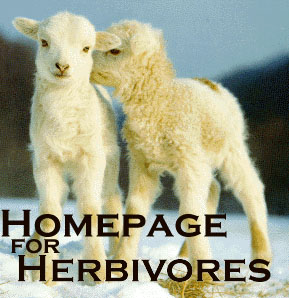'Vegetarian' Labelling
Dr Alan Long
CONTENTS AND LABELLING OF FOODS (AND OTHER HOUSEHOLD COMMODITIES) FOR THE VEGETARIAN, 'HEALTH' AND OTHER MEATLESS MARKETS
Recent events in and publicity on farming matters, hygiene and animal welfare have emphasised two discrepancies: the flaws in the arguments adduced by lacto-ovo-vegetarians and thus an increasing demand (by "rejectors") of all animal-derived products; and the more steeply rising market for meat-free or dairy-free products owing to various persuasions, notably health issues prompting "reducers" ("healthitarians") of animal-derived products. These changes and reforms are occurring in countries outside the British Isles and particularly in continental Europe.Blurring the definitions and the need for qualifying prefixes has emphasised that the meaning of the unmodified word 'vegetarian' is tending rapidly to become a synonym of the neologism 'vegan' (in some European languages 'vegetalian'). Publicity over salmonellas and other zoonoses and the difficulties in the dairy/beef/veal trade with BSE and the movements and slaughter of culled cattle and calves around misgiving among customers as serious over "approved" vegetarian cheeses as over, say, beef from "assures" closed suckler-herds - or more so. Sundry free-range additions of "VAT" to food may be contributing with health reasons for the dwindling over recent years in the general demand for eggs.
"Vegetarian" cheese may be produced with an undisclosed processing aid that is a "vegetable" rennet (actually derived from a mould or fungus or a mixture of genetically-engineered chymosins arousing reservations among the population who style themselves ovo-lacto-vegetarians. However the origins of the milk supply and its corollaries concern customers concerned for those and health reasons that these foods are really "suitable for vegetarians". Such considerations must inform the increasing trade in soya milks (and derivatives), tofu, and humous that have graduated from the vegan niche. Traditionally vegetarian foods such as nut cutlets and rissoles and patties have come into the general market, albeit with exception by true vegetarians to those "suitable" foods because they many contain animal-derived ingredients such as eggs, egg white, gelatin, milk in various forms, whey and lactose, as well as unacceptable oils and fats; most of these components could be suitably replaced or omitted.
Stricter interpretations are applied to "vegetarian" margarines, which are declared dairy-free and therefore uncompromisingly vegan (some doubts may attach to additives such as vitamin "D" -is it D2 or D3?)
To reduce the difficulties we advocate objective descriptions and labelling, with recourse to -free suffixing (meat-free or dairy-free) or terms such as "free from ingredients and processing aids derived from animals or fish" rather than continuation of subjective or variable claims of suitability or approval. Such a style could be extended as, say, contention arises over ingredients derived by some applications of biotechnology (use of rBSTs as performance enhancers in milk production). Doubts and reservations could be removed likewise over aids such as fining agents used in clarifying beverages and over formulations of toiletries, cosmetics, medicines and supplements.
We recommend these considerations to the attention of customers uncertain now in their exercise of choice in commonly available commodities.
Alan Long
14 Woodland Rise
Greenford
Middlesex
UB6 ORD
tel/fax: [+44] 0181 902 0072
HERBWEB
HedWeb
BLTC Research
Killing for Kicks
Animal Rights FAQ
The Taste of Depravity
The Vegan Society (UK)
Animal Rights Resources
The Post-Darwinian Transition
The Slaughter of Animals for Food
Ingredients Derived from Animals
